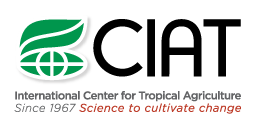CCAFS - 2015: The year in advancing climate-smart agriculture
In 2015, climate-smart agriculture (CSA) gained a substantial foothold in global and national initiatives, thanks in part to CCAFS science.
Agriculture was high on the agenda at technical meetings of the UNFCCC (UN Framework Convention on Climate Change) held in June 2015 under the Subsidiary Body for Scientific and Technological Advice (SBSTA). In preparation for workshops on agriculture, CCAFS and partners made submissions on climate impacts for smallholder farmers, fisheries and pastoralists, and options for adapting. CCAFS scientists also provided technical support for the African Group of Negotiators, among others. CCAFS knowledge was visible in the resulting proceedings and decisions. This approach continues into 2016, with further discussions on agriculture at SBSTA.
The UN climate talks in Paris in December 2015 resulted in new possibilities for more adaptation and mitigation in agriculture. Deliberations drew on CCAFS research and resources, including widely cited policy briefs that provided insight into the process and analysed the inclusion of agriculture in countries’ climate plans, known as Intended Nationally Determined Contributions (INDCs). Once the Paris Climate Agreement was approved, CCAFS published a widely read analysis of the positive outcomes for agriculture and next steps for the global agriculture community.


CCAFS also informed CSA implementation at the national level. Both Kenya and Colombia put agriculture at the centre of their INDCs to the UNFCCC, drawing on CCAFS research for evidence. This should open the door to actions and investments for more climate-resilient and low-carbon agriculture in these countries.
Since 2011, CCAFS has been supporting policy makers and stakeholders with tools for future decision-making under climate change, under the ‘Future Scenarios‘ project. The approach explores diverse ‘scenario worlds’ to help stress, test, and develop plans and policies to deal with uncertain climate and socio-economic futures. The work was developed by a CCAFS team at the University of Oxford’s Environmental Change Institute, and is now making a mark, informing climate, agriculture and socio-economic development policies in eight countries: Honduras, Cambodia, Bangladesh, Tanzania, Uganda, Burkina Faso, Colombia, and Ghana.
“A number of initiatives and approaches for Climate-Smart Agriculture were significantly scaled up in 2015, reaching millions more farmers.”
Well-designed insurance schemes not only enhance resilience when climatic shocks occur, but act as a safety net, helping farmers overcome the risk of investing in new climate-smart technologies. In India, CCAFS analyzed the current index insurance scheme in India – covering 12 million farmers – and found that the triggers for payouts were insufficient. Through improved analysis of crop-weather relationships, researchers developed new triggers, specific to different regions and crops, without increasing premiums and the government subsidy load. Maharashtra State has already adopted these new products, as well as the Agricultural Insurance Company of India, providing improved rainfall risk coverage to nearly one million farmers.

In Nigeria, the Federal Ministry of Agriculture and Rural Development has made plans to support 14.5 million smallholders with ambitious and inclusive insurance schemes. CCAFS is helping Nigeria learn from India’s experience, and has developed with Ministry partners a concept for piloting index-insurance schemes for maize and rice, and jointly formulated a four-year roadmap for reaching the goal of nationwide smallholder coverage.
Another tool that arms farmers against short-term climatic changes is climate information. In Senegal, seasonal forecasts are now transmitted nationwide through 82 rural community radio stations and SMS, potentially reaching 7.4 million rural people. This initiative is the result of a close collaboration between CCAFS and the Senegalese National Meteorological Agency (ANACIM). Farmers have been involved in every step of the process, helping meteorologists package and communicate climate information. Climate information in Senegal is now considered an agricultural input just like seeds, fertilizers and equipment.
Equipping media with scientific knowledge around various climate change issues facilitates more science-based reporting, which may translate to better public understanding and informed decisions in adapting to and mitigating climate change. In Southeast Asia, CCAFS has been part of an initiative that aims to improve climate-related media coverage in the region, with workshops and partnerships in the Philippines and Laos. Similar training courses have also taken place in Senegal and Honduras.
Beyond increasing climate resilience, CCAFS seeks to reduce emissions from agriculture, a major contributor to global greenhouse gases. Researchers analyzed agricultural emissions from different countries to understand the relative contribution of agriculture to countries’ emissions budgets. The analysis indicates which countries are likely to have the most interest in reducing their agriculture-related emissions, which can inform priority setting for global programs and policy.

Furthermore, low-emissions agriculture must improve farmers’ livelihoods and cannot compromise food security. In Kenya, CCAFS is working with the dairy sector to adopt better feed production and feeding practices, which can bring strong mitigation and livelihood benefits, while providing increased resilience to climate change. A set of climate-smart feeding and husbandry practices were disseminated to 600,000 farmers from a variety of Kenyan Dairy organizations. The dairy sector of Kenya is now leveraging climate finance to scale this up. These practices have huge potential: the Government of Kenya estimates that climate-smart actions can be scaled up to reach 1.8 million households, decreasing the country’s emissions by 3.3% of its 2010 level, while sustaining 180,000 jobs in the sector and improving smallholder incomes by US$ 1,000-2,000 per year.
Closing the gender gap in farming under climate change
An oft-cited fact is that women are more vulnerable than men to the effects of climate change and have different adaptive capacities. CCAFS research on gender and social inclusion aims to ensure that climate change adaptation and mitigation in agriculture has a positive impact for both men and women farmers. In March 2015, CCAFS and partners organized a dynamic workshop where researchers from CGIAR and partners shared cutting-edge knowledge on gender, climate change, agriculture and food security. The resulting policy brief offers five policy lessons for supporting women farmers in a changing climate.

Photo credits: (1) J.L.Urrea (CCAFS); (2) C. Schubert (CCAFS); (3) V. Reddy (ViDocs); (4) G. Betancourt (CIAT)

